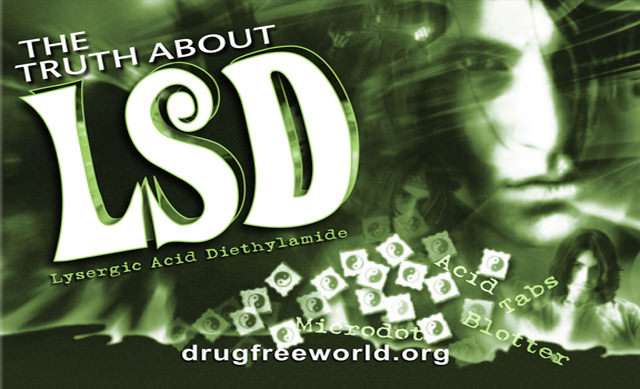Claiming Nontoxic LSD Killed a Woman, Prosecutor Charges Her Husband With Murder

Police in Charleston, West Virginia, have charged Todd Anthony Honaker with first-degree murder, punishable by a mandatory life sentence, because his wife died after dropping acid with him. The charge is outrageous for several reasons: Honaker did not force his wife to consume LSD, he did not intend to kill her, toxicological tests have not been completed yet, and, perhaps most important, LSD is nontoxic. The Charleston Gazette-Mail says Renee Honaker's death, if ultimately attributed to LSD, would be "the first reported acid-related fatality in the state and one of the few documented globally." Even that overstates the frequency of fatal reactions to LSD. In his 2001 book Illegal Drugs: A Compete Guide to Their History, Chemistry, Use and Abuse, addiction specialist Paul M. Gahlinger flatly states that "LSD is not toxic in the biological sense." According to a 2008 review of the scientific literature in the journal CNS Neuroscience & Therapeutics, "There have been no documented human deaths from an LSD overdose." Not a few; none.
So what happened to Renee Honaker? According to the Gazette-Mail, the 30-year-old woman "fell to the floor, began convulsing and died" after taking two hits. How long after is not clear. If her death had anything to do with LSD itself (as opposed to other chemicals that might be present in black-market acid), to call it a highly idiosyncratic reaction would be a huge understatement. By no stretch of the imagination was it a foreseeable result of consuming LSD, which is the very least you would have to show before accusing her husband of negligence, let alone first-degree murder. Roane County Prosecuting Attorney Josh Downey "said his initial research into LSD-related fatalities hasn't returned very many reported cases," the Gazette Mail reports, adding that "there are few documented around the world, and those rarely have resulted in criminal prosecution." Again, unless the paper somehow located documented cases that the authors of that 2008 review overlooked, "few" is an exaggeration; "zero" is more like it. Yet Downey, even without the benefit of an autopsy, insists the murder charge is appropriate:
Downey said although he hasn't seen the lab results, he believes there's enough probable cause to show that Renee died after ingesting the drug.
"If the stuff comes back differently we have to analyze the case," he said. "But based on what Todd Honaker told us, it was the acid."
What kind of warped mentality does it take to compound a widower's trauma by recklessly accusing him of homicide? The same kind that brought us the war on drugs.
Addendum: While West Virginia classifies delivery of a controlled substance resulting in death as first-degree murder, punishable by life in prison, many other states treat it as a less serious offense, such as second-degree murder (Virginia, five to 40 years), third-degree murder (Pennsylvania, at least five years), or criminally negligent homicide (New York, up to four years).
[Thanks to Chip Smith for the tip.]


Show Comments (63)